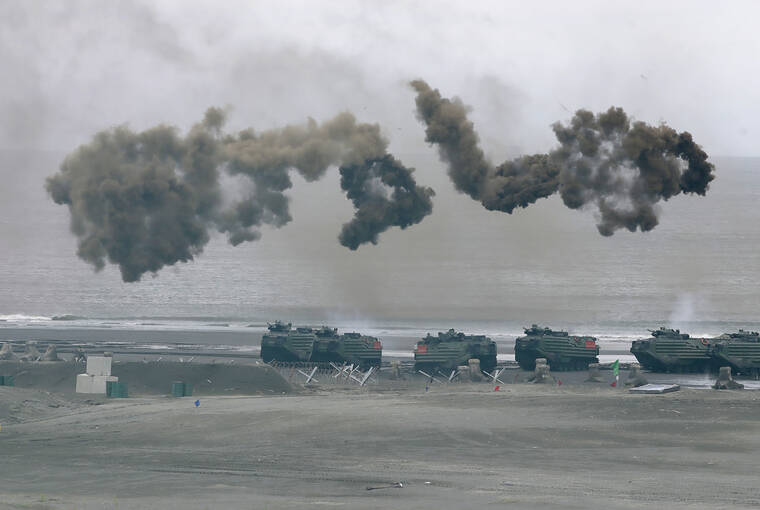In a significant move that could shape the geopolitical landscape in the Indo-Pacific region, the United States has announced a momentous $345 million military aid package for Taiwan. This marks the Biden administration’s first major initiative to bolster Taiwan’s defense capabilities in the face of mounting pressure from China. The comprehensive aid package, encompassing defense, education, and training, aims to equip Taiwan with advanced weaponry to counter potential aggression from China and maintain stability across the Taiwan Strait. This bold move has already sparked both support and protests, highlighting the delicate nature of the region’s security dynamics.
U.S. Delivers Comprehensive Military Aid Package to Taiwan
In an unprecedented move, the White House has unveiled a $345 million military aid package for Taiwan. The assistance will encompass various elements, including defense equipment, education, and training. As part of this aid, the United States will send man-portable air defense systems (MANPADS), intelligence and surveillance capabilities, firearms, and missiles to bolster Taiwan’s self-defense capabilities. The decision to draw weapons from existing U.S. military stockpiles allows for faster delivery to Taiwan, providing an essential lifeline in countering potential threats from China.
U.S. Lawmakers Push for Swift Weaponry Delivery to Taiwan
U.S. lawmakers have been exerting pressure on both the Pentagon and the White House to expedite the supply of weapons to Taiwan. The primary objectives are twofold: to enhance Taiwan’s defensive capabilities against potential Chinese aggression and to deter any thoughts of invasion by making the cost too high for China. While Chinese diplomats have protested this move, Taiwan’s trade office in Washington has expressed gratitude, recognizing the aid’s critical role in supporting Taiwan’s self-defense efforts. The U.S. decision to provide military assistance to Taiwan demonstrates the commitment to maintaining peace, stability, and the status quo in the region.
Geopolitical Significance and Regional Reactions
The military aid package for Taiwan comes in addition to approximately $19 billion worth of previously approved military sales, including advanced F-16s and other major weapons systems. However, supply chain challenges have hindered the timely delivery of these weapons, partly due to the COVID-19 pandemic and the global defense industrial base pressures arising from Russia’s invasion of Ukraine.
As tensions between China and Taiwan escalate, the importance of U.S. support for Taiwan’s security becomes evident. While the U.S. maintains a “One China” policy and does not formally recognize Taiwan’s independence, U.S. law requires credible defense for the island, treating any threat to Taiwan as a matter of “grave concern.”
China’s stance on the matter has been clear, with the embassy in Washington voicing firm opposition to the U.S.-Taiwan military ties and demanding an end to arms sales to the island. China’s President, Xi Jinping, asserts China’s right to take over Taiwan, even if it requires the use of force, raising international apprehension over the potential for conflict in the region.















